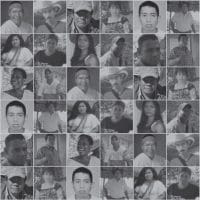-
We are the resistance
The UK Supreme Court does not change the reality of trans and non-binary people.
-
The food police
Food theft isn’t an indicator of criminality, but of a failing social system.
-
Algorithms of injustice: Artificial intelligence in policing and surveillance
If anything, the use of computer algorithms to guide police appears only to entrench and exacerbate existing biased policing practices.
-
Fake ‘shoplifting surge’ is just the latest in crime wave propaganda
The issue has become one of the key fronts in the development of law and order rhetoric. It is part of the backlash from pro-police elements of society to prevent any changes at all to the country’s hyper militarized, mainly ineffective, racist, and brutal system of policing and the accompanying system of mass incarceration.
-
The Ballot or the Brick: On Elizabeth Hinton’s ‘America on Fire’ and Vicky Osterweil’s ‘In Defense of Looting’
Two new books trace anti-police uprisings to the urban riots of the Civil Rights era. But as twenty million people took to the streets in 2020, why did so few pick up a brick? And would the movement to which they belong be better off if they had?
-
The dishonest blame game of retail store closures and crime
Reporters who parrot corporate claims of out-of-control theft play into a narrative that benefits big business and perpetuates carceral policies.
-
The case for abolition, for skeptics
In the final piece of the series, NLG Anti-Racism Committee Co-Chair and one of the proponents of the 2020 policing resolution Kira Kelley makes the case for the abolition of policing and offers examples of individuals and projects taking power and resources away from police and prisons to create non-carceral, non-punitive alternatives.
-
Criminalizing environmental activism
Berta Cáceres, assassinated in her home on March 3, 2016, was just one of hundreds of Latin American environmental activists attacked in recent years. At least 577 environmental human rights defenders (EHRDs) were killed in Latin America between 2010 and 2015—more than in any other region—as documented by Global Witness.








